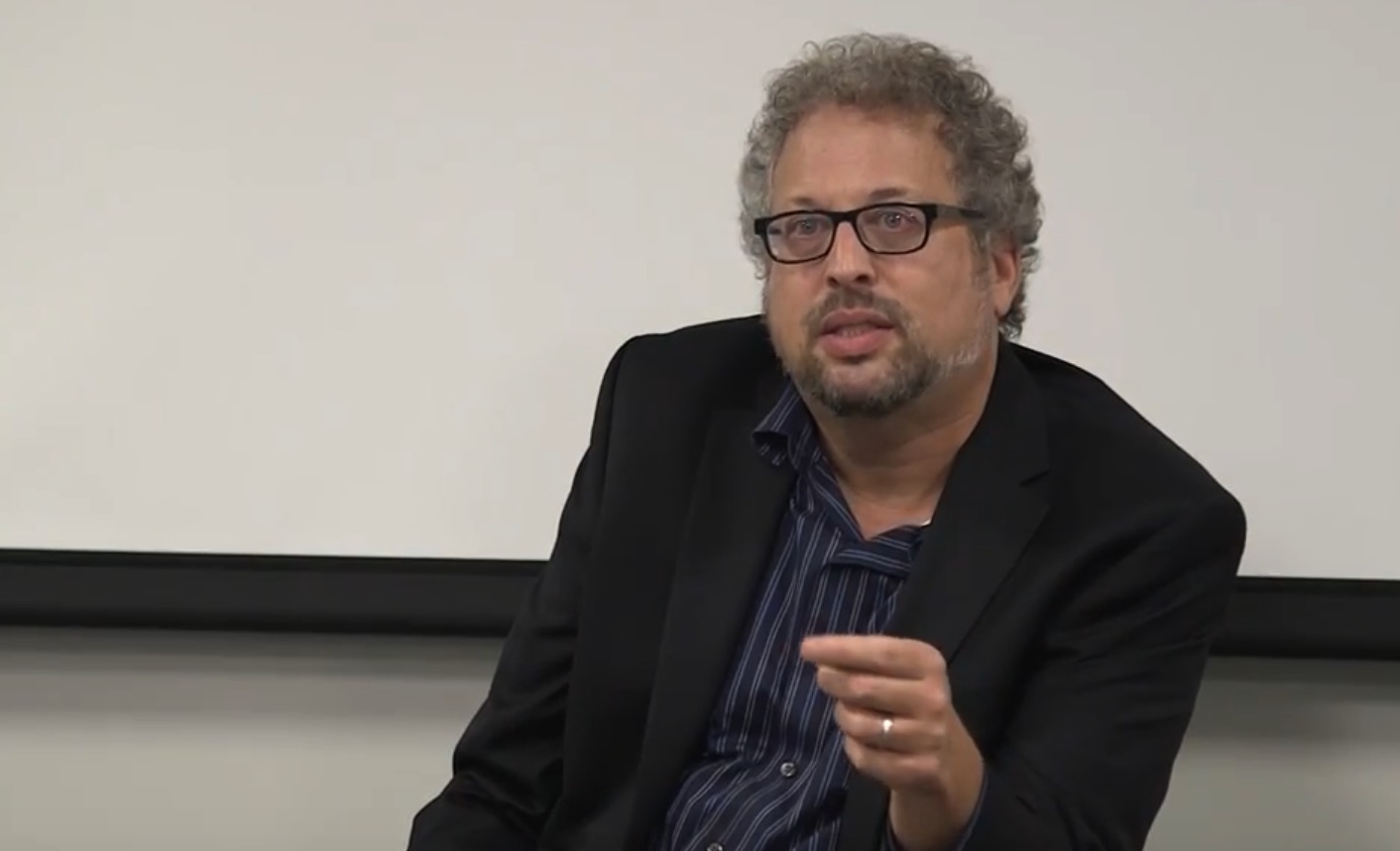Media Watch: Dan Froomkin on covering Donald Trump
On September 19, Washington-based reporter and media critic Dan Froomkin spoke at Northeastern University’s School of Journalism about the journalistic perils of interviewing Donald Trump, especially now that he has the added authority of the presidency.
Froomkin, who wrote a column on the White House press corps for The Washington Post, has been a senior Washington correspondent for The Huffington Post and was most recently Washington editor for The Intercept. He has critiqued recent Trump interviews by The New York Times, The Wall Street Journal and Time magazine. In all three instances, Froomkin discussed the journalists’ difficulty in holding Trump to account for the accuracy and clarity of his comments.
This interview is the first in a series conducted as part of a new Northeastern School of Journalism course, Media Watch: Assessing the Press in the Trump Era, that I am teaching this fall.
Download the audio here.
Highlights from the interview
Why the ball is in the reporter’s court during sit-down interviews
3:40
“At the press conference, the president controls everything. You can’t ask follow-up questions, the reporters all have their own little questions that their bosses want them to ask. So there’s no thematic unity or coherence or cohesion to a press conference. When you have a sit-down interview, you the reporter can drive that interview. And I think that’s really important with Trump.”
Why the press needs a “Googling monkey” to cover Donald Trump
4:35
“It used to be that I’d say you have two reporters – ‘good cop, bad cop.’ This actually worked remarkably well back under Bush at The Washington Post when there was Mike Allen, the sycophantic bootlicker, and Dana Milbank, the incredibly cynical jerk. They covered the Bush White House pretty well, as well as anyone did back then, because Dana would write all the nasty stories and then Mike would apologize for them. Right now, you need not just ‘good cop, bad cop’ but also ‘Googling monkey’ so that, basically, you have somebody at the table or somebody with access with an earpiece saying, ‘What he just said, it’s not true and here’s why’ because he just makes up incredible fabrications out of nothing. It is astonishing what reporters have let him get away with.”
In way over his head
12:30
“You have to go deeper with him. You can’t just let him sort of hit a topic and then bounce off. The story about Trump to me, the fundamental story, is that the guy has no idea what he’s doing. He’s in way over his head, he doesn’t understand government, he doesn’t understand what he’s doing at all and he has these little soundbites, most of which aren’t true, that get him a lot of press. So you need to go deeper and that’s what the sit-down interview is for.”
Don’t just aid and abet
43:35
“As a reporter going in, if you’re not going in with the goal, the intention and the preparation to at least tell the real story of Donald Trump, you’re just aiding and abetting. That’s all.”
Why the press can’t ignore Trump’s tweets
48:30
“[Twitter] has become the single greatest look into his brain. It’s really pure Trump. I mean, everything else you hear, you know, from the White House, we don’t know what that… There is no White House. Right? There’s like factions within factions and they don’t know what the hell is on his mind. The only time you know what’s on his mind is when he tweets.”
Asking questions to sound smart won’t necessarily get you news
1:04:42
“I think reporters should feel free to look dumb. God knows I have. So… everyday I’d ask the same question, ‘What’s taking so long?’ And I’d look like an idiot and all those people in the press corps were like, ‘Why are you asking such a stupid question?’ That’s the only question that ever got a reasonable answer and made news the next morning. So, yeah, asking common sense questions. You forget it in the throes of… it’s not so much ‘gotcha’ but it is looking for news, looking for a nugget.”
History will be unkind to the Trump phenomenon
1:18:45
“A few years from now – two, five, certainly 20 – history will be unkind to this. It’ll be seen as an absolutely bizarre aberration in America’s not-always-glorious history, this one’s even more bizarre. How could this man have become president? How could he be treated as… how could he get the majority support of both houses of Congress? That’s a great question. That’s a great subject for an interview. Members of Congress, ‘How do you find it o.k. to support this?’ And go down the list of issues of things… What about his credibility? What about his position on white nationalism?”
Thanks to Natasha Chang for video production help.
- Media Watch: Dan Froomkin on covering Donald Trump - October 2, 2017





